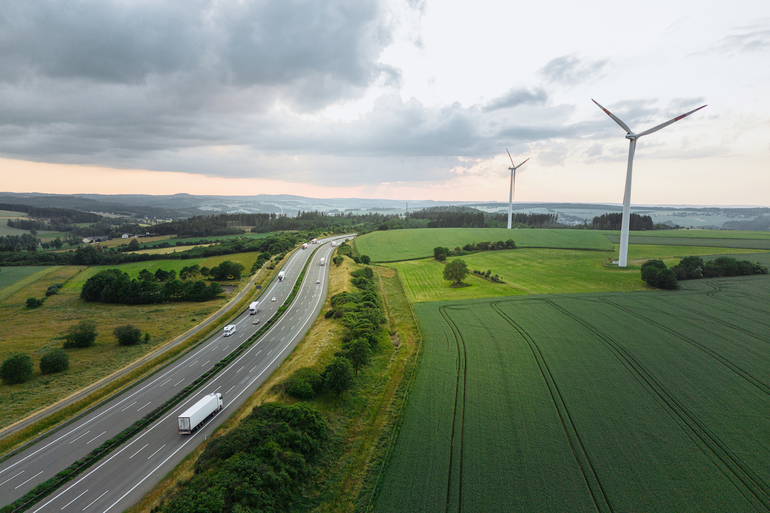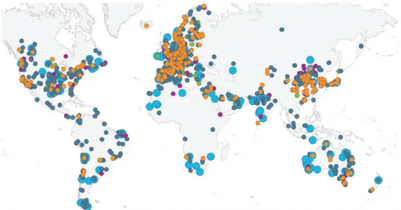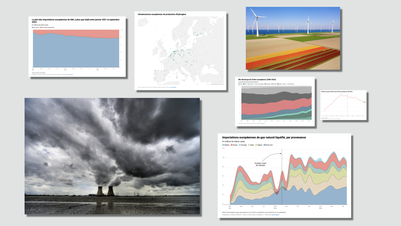working-paper
October 28, 2025
Report: Hydrogen Internal Combustion Engines in Europe’s Road Mobility Decarbonisation
The development of this report was led by members of the H2Accelerate collaboration which has been formed by major players from the fuel supply and trucking industries to work together to accelerate the deployment of hydrogen - powered trucking in Europe.

Executive Summary
Hydrogen internal combustion engine vehicles (H₂-ICEVs) have recently seen increased interest, culminating in their classification as zero-emission vehicles (ZEVs) under the updated Heavy-Duty Vehicles CO₂ standards in May 2024 (1).
H₂-ICEVs present opportunities to accelerate European zero-emission vehicle deployment and support the roll-out of hydrogen-refuelling infrastructure to meet the 2030 Alternative Fuels Infrastructure Regulation (AFIR) targets, by building on the existing experience of the automotive sector with ICE vehicles.
H₂-ICEVs are similar to their diesel equivalents, enabling OEMs to repurpose existing manufacturing infrastructure, supply chains, and engineering knowledge. As a result, H₂-ICEVs are projected to be the least capital-intensive zero-emission technology until BEV and FCEV markets reach higher maturity. The similarity between hydrogen and diesel combustion engines may also normalize the use of hydrogen fuel, supporting the roll-out of FCEVs among end users in the future.
While some in the automotive sector see the role of H₂-ICEVs as a transition technology towards FCEVs, H₂-ICEVs are now also being considered as one of the zero-emission technologies of choice for certain, particularly high-load applications over a range of distances. For specific heavy-load road and non-road mobile machinery (NRMM) applications, H₂-ICEVs offer high efficiency and robustness compared with alternative zero-emission technologies.
While H₂-ICEVs can offer higher fuel efficiency in certain heavy-load on-road and off-road applications, fuel cell electric vehicles (FCEVs) remain the more fuel-efficient solution under typical road conditions and at lower loads. H₂-ICEVs are nonetheless expected to play an important role in the heavy-duty road transport sector. Building on the existing fossil-fuel ICE manufacturing base, H₂-ICEVs are expected to be manufactured at scale before the end of the decade.
As such, H₂-ICEVs will be important offtakers from Europe’s first HRS networks and may present fuel suppliers with an opportunity to accelerate the roll-out of a broader HRS network. H₂-ICEVs and components can be locally produced, bolstering Europe's industry, supply chains, and skilled employment while also enhancing its regional autonomy.
Despite the opportunities presented by H₂-ICEVs and their classification as ZEVs, H₂-ICEVs are not yet classified equally with other zero-emission truck technologies. H₂-ICEVs have been excluded from incentivising mechanisms and, in some EU Member States, remain unable to refuel from existing HRS infrastructure due to existing energy taxation legislation (Regulation (EU) 2024/1610).
To support H₂-ICEV deployment and accelerate decarbonisation, European policymakers must:
-
Ensure that hydrogen ICEVs are classified as zero-emission vehicles across all EU Member States.
-
Ensure equal treatment of zero-emission vehicle technologies. Hydrogen ICEs should be subject to the same incentives as other zero-emission technologies and must not be excluded from funding schemes for research or deployment of vehicles.
-
Ensure that hydrogen used in an H₂-ICEV is subject to the same taxation and exemptions as hydrogen used in a FCEV, allowing both vehicles to refuel from the same HRS infrastructure.
-
Ensure that hydrogen trucks are included as eligible technologies for national and European zero-emission vehicle deployment projects.
-
Ensure Member States treat H₂-ICEVs and FCEVs equally when implementing RED II / RED III certificates.
-
Research projects into hydrogen combustion engines should continue to be funded by European funding schemes such as Horizon Europe.
-
H₂-ICEVs present a significant opportunity for Europe to deploy a zero-emission technology at scale before the end of the decade, building on existing expertise and maintenance base for fuel trucks. To pursue this opportunity, European policymakers must ensure that H₂-ICEVs receive equivalent subsidies and support as alternative zero-emission vehicles, namely fuel cell and battery electric vehicles.

“Fuel Cell Technology has now reached unprecedented performance”: Recent Advances Reinforce the Case for Hydrogen Mobility
An interview with Sae Hoon Kim, engineer, leader of Hyundai’s hydrogen strategy and Head of Fuel Cell Development for 20 years.
More about

Innovating to finance the hydrogen economy
On the road to a more sustainable economy, we need more investment in sustainable assets. These investments must not only be supported by appropriate regulatory frameworks, but also encouraged and facilitated by financial mechanisms.
More about

Energy Europe – From integration to power
Europe is fragile. It's a fact: it will never have total energy independence. How can we take advantage of this situation? Pierre-Etienne Franc, co-founder and CEO of Hy24, proposes to turn a weakness into a strength - to the benefit of the Union's industrial and foreign policies.
More about
